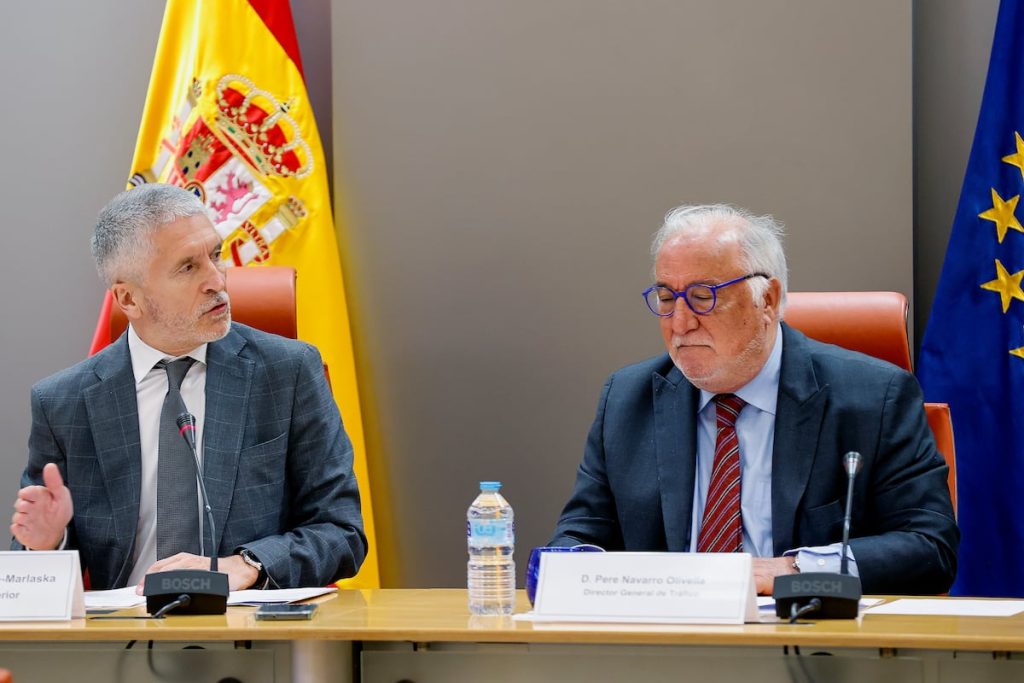The Minister of the Interior, Fernando Grande-Marlaska, has announced a series of measures to reduce traffic accidents and fatalities on roads in response to a significant increase in road deaths in the first quarter of the year. The number of fatalities has risen by 16%, with a total of 261 deaths on interurban roads, compared to the same period last year. Grande-Marlaska has highlighted that 34% of these fatalities were not wearing seatbelts, which is a concerning increase from the usual rate of 25%. To address this issue, the Directorate General of Traffic will be implementing various measures, including the installation of 95 new fixed speed control points, with 60 of them being “section radars” that monitor the average speed of vehicles between two points. Additionally, 150 more officers will be added to the Civil Guard’s Traffic Department, and there will be an increase in alcohol and drug tests, as well as the introduction of camouflaged motorcycles for surveillance.
In addition to the increase in speed control measures, the plan also includes increased surveillance on highways and motorways, particularly in Andalusia and the Valencian Community, where there has been a higher number of fatalities. This will involve static patrols, dynamic patrols, and the use of unmarked commercial vehicles to detect offenders, especially in identified dangerous areas and times of the day. There will also be an increase in information for drivers on road signs, as well as surveillance through cameras and aerial traffic monitoring. Specific measures have been designed for motorcyclists, who have been a significant factor in the rise of accidents, with campaigns focused on awareness and prevention, distribution of informational materials, and increased surveillance of professional transport vehicles and drivers for alcohol and drug use.
The comprehensive plan also aims to address the increase in mortality rates on expressways and motorways, as well as the general deterioration of road safety, which is a trend observed in other European countries as well. The plan is based on an analysis of the circumstances of accidents in the first quarter of the year, revealing a significant rise in fatal accidents, particularly on expressways and motorways, where the use of alcohol and excessive speed has been identified as contributing factors. The government emphasizes the need to break this trend and improve road safety through increased enforcement and awareness campaigns, both on social media and traditional platforms such as road signs and other media.
The implementation of more speed control radars, increased traffic officers, and intensified alcohol and drug tests are aimed at reducing the number of accidents and fatalities on Spanish roads. The plan also includes the use of camouflaged motorcycles for surveillance and enforcement purposes on weekends, as accidents involving these vehicles have increased by 43% during this time. By increasing patrols and surveillance on specific routes and times, the authorities hope to deter risky driving behaviors and reduce the number of accidents. Additionally, by targeting commercial vehicles and professional drivers, the plan seeks to improve road safety and reduce the number of fatalities, particularly on weekdays when accidents have increased significantly.
Grande-Marlaska has emphasized the need for immediate action to address the rise in road fatalities, as the current trend is unsustainable and requires urgent intervention. The implementation of new measures, such as increased surveillance, awareness campaigns, and enforcement efforts, aims to reduce the number of accidents and deaths on Spanish roads. By addressing specific risk factors such as speeding, alcohol use, and lack of seatbelt use, the government hopes to create a safer road environment for all drivers and reduce the impact of road accidents on families and communities.


